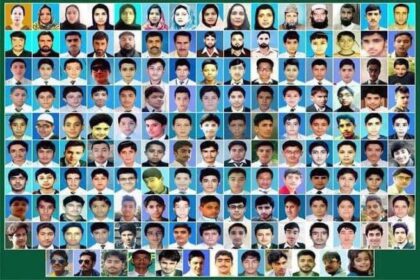Government to Solve Inflation: Remember when Prime Minister Shahbaz Sharif advised us, with utmost concern for himself and his people, to cut down on chai to progress as a nation? Once again, the dynamic nature of our economy has forced us to confront the issue of inflation. Only this time, our leaders have truly outdone themselves: the solution, we are told, is not an economic reform, not a policy change, but the redefinition of roti itself.
Yes, indeed, you read that correctly. The government’s specially convened Jirga of National Redefinitions — a body so ingenious it thrives even while technically banned and widely criticised — has recommended that roti no longer be understood as a physical, edible object but instead as “a light, airy concept that nourishes the spirit — if not the stomach.”
A New Ministry, A New Dawn
To further elaborate on this groundbreaking breakthrough, the newly minted Federal Minister for Redefinition addressed the media. With a serious face and a belly rivalling that of a woman in her third trimester, he solemnly declared:
“Citizens must understand that times have changed. Bread, our staple diet, is not about eating — it is about meaning. Once you shift your mindset and find depth in roti, hunger will no longer feel like a problem. It will feel like an enlightenment — one you all will feel as a blessing.”
He further clarified that by redefining essential items, the government, with the people’s cooperation, could finally declare victory over inflation. Milk, for instance, will soon be reframed as “a metaphor for purity”, while electricity will be hailed as “a state of inner illumination”. Truly, a glorious adventure in absurdity lies ahead.
Jirga: Justice, Redefined
The Jirga, famous for its creative problem-solving (and occasionally for being outlawed and corrupt), is said to have brainstormed this idea over a five-hour session where, fittingly, no food was served. One member reflected that the absence of roti was so oddly inspiring that it led to a unanimous agreement: life would be easier if nobody ever expected or consumed bread again.
Another member, speaking anonymously for his safety, admitted:
“The government cannot raise wages, reduce unemployment, or fix supply and demand. But words? Words cost nothing. And if words ever filled stomachs, we’d all be feasting.”
This, he noted, is the perfect metaphor for governance in Pakistan itself: hollow words, hollow promises, and hollow actions.
(Note: Please do not report us. We are mere servants and do not want any discomfort.)
The Legacy of Hard Work
Critics argue this move is absurd. But loyalists insist it is the culmination of years of visionary governance. After all, what better proof of the government’s tireless “hard work” than its ability to invent solutions that bypass reality altogether?
This redefinition of roti is not an accident; it stems from advising people to cut chai, celebrating poverty as resilience — of course, only for the people, not for our beloved corrupt leaders — and turning every crisis into a story of national strength. It is the logical conclusion of an economic philosophy that has always favoured rhetoric over reform. In fact, this absurd proposition is the truest reflection yet of how hollow the government is — and how hollow its actions are, time after time.
(Note: My laptop is hacked! I do not approve of any criticism of the government, and I am terrified of black Vigo.)
Indeed, this proposal is not merely unconventional; it is truly unprecedented.
Citizens React
On the streets, people had mixed opinions. A shopkeeper in Karachi scoffed: “So, when my kids ask for dinner, should I recite them a ghazal about roti instead?”
Meanwhile, a government loyalist praised the move: “I feel lighter already. It must be working.”
The poor man fainted minutes later, while repeating, ‘It works, it works…’, over and over again. Witnesses reported that he was rushed to a nearby clinic, where the doctor, in line with government philosophy, prescribed him not food, but a motivational lecture titled “Bread Is in the Mind”, which is truly in line with our government’s vision!
The Future of Redefinition
The Minister assured the press that this was only the beginning. If citizens embraced the new roti philosophy, the government would expand the project nationwide, perhaps even internationally. Poverty would be redefined as “a celebration of minimalism”, joblessness as “a journey of self-discovery”, and load-shedding as “collective candlelit bonding”.
Meanwhile, officials will nobly continue their “sacrifice” — luxurious meals and growing bellies — so the rest of us may survive on semantics.
In conclusion, while the rest of the world wrestles with complex economic policies, Pakistan has chosen a higher path: escaping inflation not through reforms, but through the magic of redefinition. As the Minister so wisely put it:
“You cannot eat a roti, but you can always believe in one. And that, my dear citizens, is priceless.”













So perfectly written Zainab! 👑💓